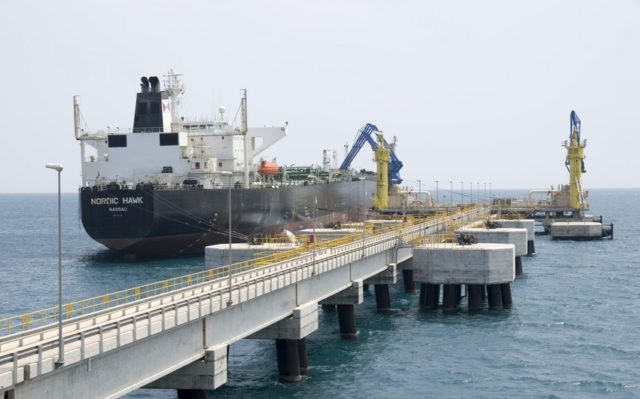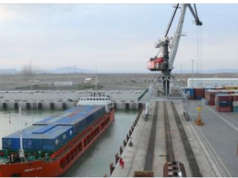The Kazakh state company KazMunayGas (KMG) in February will start exporting oil via the Baku-Tbilisi-Ceyhan (BTC) oil pipeline from the resources of Tengizchevroil (TCO), Report informs referring to Reuters.
In February, deliveries may reach 120,000 tons.
Earlier, it was reported that KMG was negotiating with the State Oil Company of Azerbaijan (SOCAR) on the supply of up to 1.5 million tons of oil per year via BTC.
Kazakh oil enters the BTC pipeline, a key export route for Azerbaijan’s raw materials, in a mixed way: part of the oil by rail, part by small tankers through the Caspian Sea with loading at the port of Aktau for delivery to Baku, then by pipeline.
The press service of Kaztransoil, which owns an oil transshipment terminal in Aktau, said that “in February 2023… Kaztransoil plans to load 120,000 tons of TCO oil into tankers in the port of Aktau,” without specifying the further route.
Kazakhstan is trying to increase oil exports bypassing Russia, seeking to diversify supplies, which President Kassym-Jomart Tokayev spoke about in the summer of 2022. However, for now, the Caspian Pipeline Consortium (CPC) remains the main export route, ending at the Russian sea terminal Yuzhnaya Ozereevka near Novorossiysk, and the share of alternative supplies is small.
According to traders, KMG uses oil from TCO, headed by the US Chevron company, in which the Kazakh state holding has a stake, for deliveries via BTC, but will sell batches of Azeri BTC with shipment from the Turkish port of Ceyhan on its own.
At the first stage, one consignment of Azeri BTC oil per month is expected to be shipped from Ceyhan, with a subsequent increase to two cargoes.
Until 2015 TCO raw materials were exported via BTC.
Kazakhstan plans to export oil via the BTC in the amount of 1.5 million tons per year in 2023 and is considering its further increase to 6-6.5 million tons per year.
At the same time, Kazakh oil exports across the Caspian Sea are limited by the capacity of the Aktau port, which currently stands at 5.5 million tons per year, of which about 2.1 million tons are sent to Makhachkala and further through the oil pipeline to Novorossiysk.
Another problem of trans-Caspian transportation is the shortage of tonnage and the impossibility of increasing the fleet of tankers after the closure of navigation on inland waterways of the Russian Federation, through which the fleet can replenish.
Kazakhstan hopes to increase trans-Caspian transit as part of a strategic partnership agreement between KazMunayGas (KMG) and Abu Dhabi Ports Company (ADP, United Arab Emirates), which was signed in January 2023.
As part of the agreement, the parties plan to create a tanker fleet, taking into account alternative routes for the export of Kazakh oil, including towards Azerbaijan through Aktau.
The main shareholder of TCO is US Chevron (50%), Exxon Mobil (25%), KazMunayGas (20%) and Lukoil (5%) also have shares in the project.







